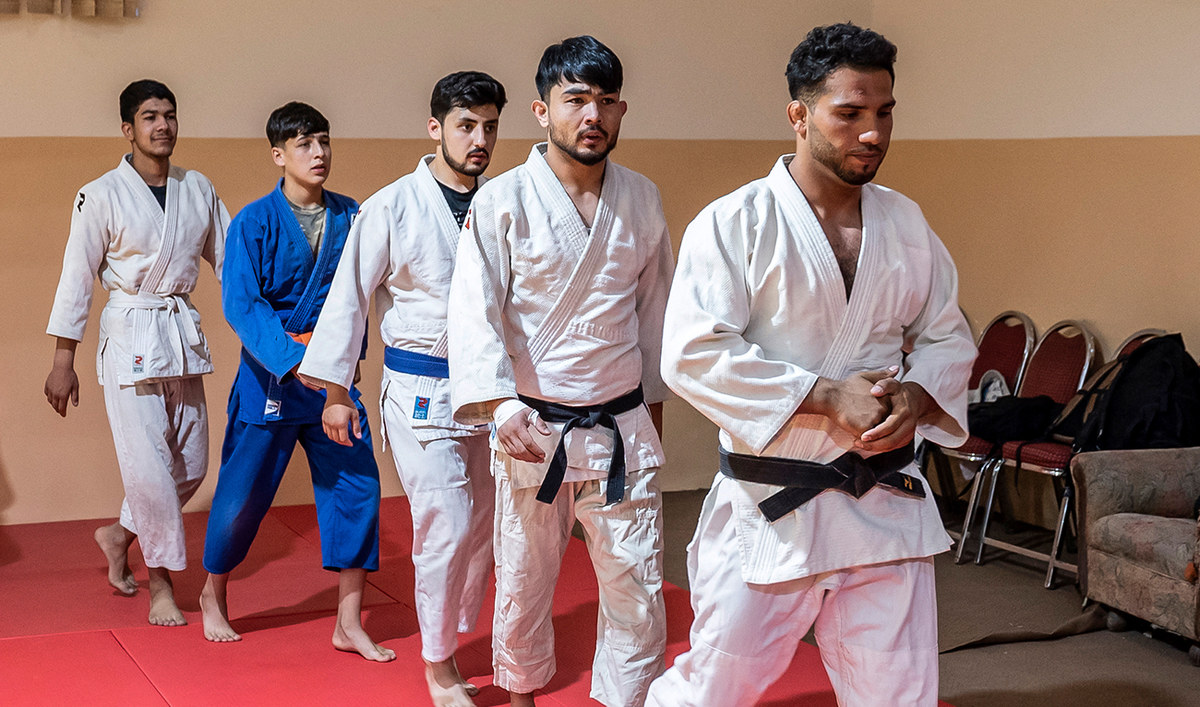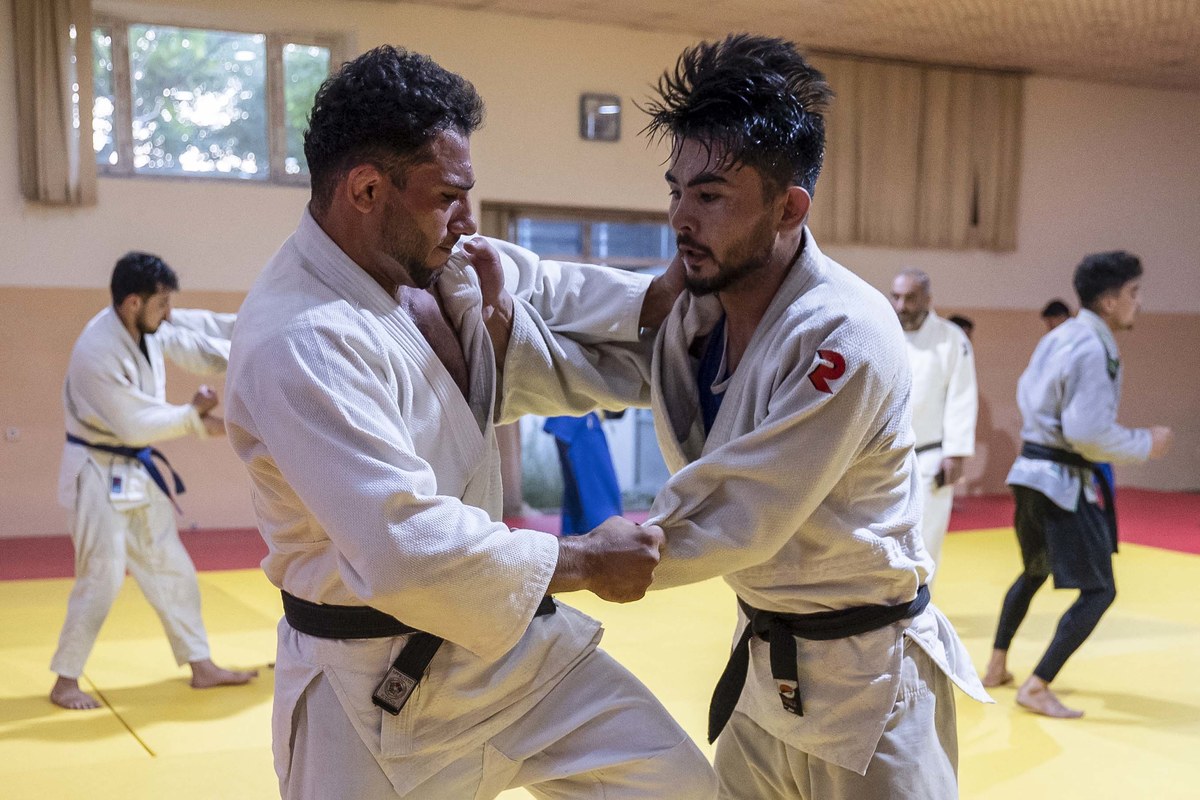KABUL: Flipping his flailing judo sparring partner to the mat, Afghanistan’s Mohammad Samim Faizad is the only Olympic athlete training for the Games inside his Taliban-controlled homeland.
Six Afghans — including three women who are not acknowledged by the Taliban government — will compete at the Paris Olympics this month in cycling, athletics, swimming and judo.
Faizad is the only member of the team still living in Afghanistan and follows a rigorous regime whilst competing with the challenges of living in a country mired in poverty, recovering from war and governed by the Taliban.
“Physical fatigue subsides after 10 to 20 minutes, but mental and psychological exhaustion is much harder to overcome,” the 22 year-old, who works odd jobs to fund four hours of training in the Japanese martial art each day, told AFP.
“Judo means a lot to me,” he said while other fighters sparred at the run-down gym of the Afghanistan Judo Federation in Kabul.
“One of my biggest dreams has been to someday participate in the Olympic Games.”

In this photograph taken on June 27, 2024, Afghan judo fighter Mohammad Samim Faizad (R) takes part in a training session at the Afghanistan Judo Federation in Kabul, ahead of his participation in the Paris 2024 Olympic Games. (AFP)
The International Olympic Committee (IOC) banned Afghanistan from the Games in 1999, during the first period of Taliban rule from 1996 and 2001 when women were barred from sport.
The country was reinstated after the Taliban were ousted by the post-9/11 invasion, but the Paris Games mark the first summer Olympics since they took back power in 2021.
Taliban government curbs have once again squeezed women out of sport, as well as secondary schools and universities, in strictures the United Nations describes as “gender apartheid.”
But this time the IOC has invited a squad without consulting Taliban officials — who have not been invited to attend — instead working with the largely exiled national Olympic committee.
The team of three women and three men were chosen under a system ensuring all 206 nations are represented at the Games, in cases where athletes wouldn’t otherwise qualify.
Faizad won his spot in a Kabul tournament of more than a hundred competitors.
“I will give my hundred percent to get the gold medal for my country,” said Faizad, who has practiced judo for 14 years and is 446th in the men’s world rankings.
The Taliban government have campaigned to be the country’s only representatives at diplomatic forums but in sport have been less dogmatic, praising teams that play under the old flag.
“We don’t want to mix politics and sports,” Atal Mashwani, the spokesman of the Taliban government’s sports directorate, told AFP.
However he insisted that “only three athletes are representing Afghanistan” at the Olympics, refusing to acknowledge the women competitors.
He added that with time “the flag issues will be solved.”
“The flag of the ruling government will be waved in international sports events,” he said.

In this photograph taken on June 27, 2024, Afghan judo fighter Mohammad Samim Faizad (L) takes part in a training session with fellow judoka Shamsuddin Payenda Zadah at the Afghanistan Judo Federation in Kabul, ahead of Faizad's participation in the Paris 2024 Olympic Games. (AFP)
Afghanistan first appeared at the 1936 Olympics in Berlin and have won only two bronze medals, both in Taekwondo.
“In Afghanistan, there aren’t many opportunities for sport,” said Faizad.
“We don’t have standard clubs to train properly, but we do our best.”
The word judo means “gentle way” in Japan and Faizad tries to cultivate the zen-like calmness his sport requires of champions by putting all other things out of his mind.
“An athlete should be able to focus only on sport,” he said.
The young fighter is trained by his uncle, 36 year-old Ajmal Faizada — who competed in the 2012 London Olympics and will accompany him to Paris.
“We have both given our best in training,” said Ajmal.
“We are really aiming to return with the best achievement possible.”
The Paris Olympics will be Faizad’s first international competition — but with the Taliban government unrecognized by any other nation, the trip is difficult and complicated.
Most embassies in Afghanistan were evacuated during the Taliban takeover and Faizad must travel to neighboring Iran to apply for his visa.
“Whether I win or not, and if I return to Afghanistan empty-handed, I will train to be ready for the 2028 Olympic Games,” he promised.



























